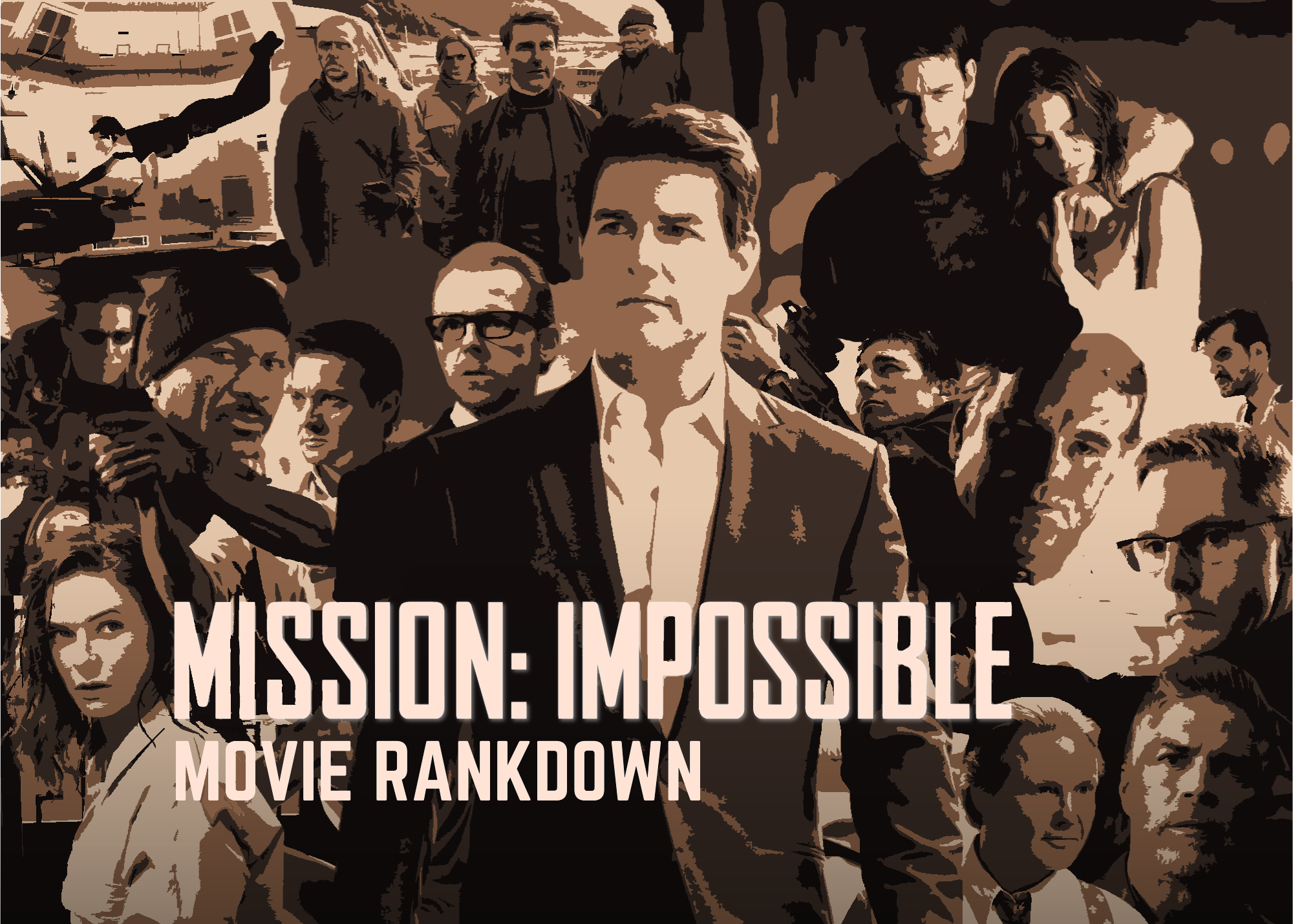"Barbie" Review: A Funny But Misguided Comedy of Patriarchy and Horses
It picks up as it goes along, but unlike its humor, Barbie's social commentary never quite rises to the occasion.
ModernOn August 13, 2019, Sony Pictures Entertainment released the trailer for Greta Gerwig’s Little Women, the seventh film adaptation of Louise May Alcott’s 1868 novel.
As with any trailer, it was essentially a 3-minute marketing scheme that cynically exploited its target audience. In the thick of the #MeToo movement, a women-led film featuring a female writer-director and four sisters having their lives chronicled in 19th-century Massachusetts was obviously an attempt by a major studio to cash in on societal trends.
So be it. Art reflects the world and comes from its many developments, ideas, progressions, regressions, eccentricities, desires, principles, and values.
Near the end of the trailer, Saoirse Ronan’s Jo March, the feminist icon who longs for a career in literature, gave an impassioned speech about the unfair expectations leveled at women by an oppressive patriarchy: that they're fit only for love, hearth, and home and that all the ambition and talent they possess has no place in a man's world.
It painted the film as a pseudo-feminist attempt to tear down archaic patriarchal ideals and celebrate female determination to establish genuine equality in a man's world. In other words, the sort of film that lacks substance, preaches to the choir, and sends viewers home with their eyes in the back of their head: nobody likes a lecture.
However, as with many trailers, it grossly misrepresented the nature of Jo’s speech: not to criticize antiquated perspectives on womanhood and demand respect for her sisters-in-arms, but to pose a nuanced question: why can’t women have that ambition, talent, soulfulness, determination, and drive, succeed in their chosen field, pursue their dreams with equal opportunity for realization, earn the respect of their peers… and find true love and happiness?
Yes, she wants to write and get published, and she won’t concede, but as she says, “I’m so lonely.”
As one leaves the movie theater, having just taken in Gerwig’s newest film, Barbie, one asks a very prudent (and unfortunate) question:
“What happened to Greta Gerwig?”
Popular Internet discord is left-dominated, so the right’s attempts to vocalize their feelings about anything get swiftly rebuked. Ordinarily, that admonishment is justified, and even now, as an army of petulant man-children decries the lost world of heteronormative masculinity, no one should take their hyperbolic claims about Barbie seriously. However, there is a sliver of truth to extract from their complaint:
No matter how desperately it tries to convince us otherwise, Barbie doesn’t like men, and by not liking men, it, by its own standard, doesn’t like women.
Is that because women need men on some old-fashioned, misogynistic principle? No. It’s because, as Barbie nears its conclusion, it touches upon something truthful, something Little Women understood beautifully four years ago but that Gerwig seems to have altered her thinking on today: eh, let’s give this one over to the High School Musical kids.

Of course, it would be dishonest to hyperbolize the discourse around Barbie and claim it lacks any nuance. Within its 114-minute runtime is some humorously moving commentary on how all-consuming archaic systems damage its citizens. Even in a society where horse-riding men rule the world, they are unfulfilled. The expectations set forth by being the one to set forth expectations become too suffocating to allow self-discovery. After all, the truest forms of emotional expression any of the Kens can muster is relaying their possessive, self-effacing emotional affections through a song (which is fine, because playing the guitar is manly), or fighting over women, using Barbieland “violence” to establish dominance and reconcile heartbreak.
It’s true. Patriarchy also disservices men, and a more balanced perspective on gender roles, wherein everyone is free to do as they please, not as either end of the political spectrum demands, rules the day, would be better for everyone. However, one must ask: how much are we responsible for seeing this message in Barbie when the movie cannot commit to it?
Life overflows with truth: the sky is blue, the grass is green, and vanilla bean ice cream is objectively better than French vanilla, because consistency, and French.
It is also true that because of this overwhelming truth, stating the obvious, or simply many true things, holds little value past the first time it happens. Once we know the sky is blue, commenting on that is fruitless, but noticing turns of hue and predicting the incoming weather does have value (unless you’re not Amish and have a phone with a weather app).
Yes, women have it rough out there. Yes, patriarchy oppresses their ideas and restricts their freedom. Yes, men suffer under the thumb of patriarchy without even realizing it.
And with all that, Barbie believes…… something, or… something?
Barbie sees the world plainly and clearly, but not with any real insight, and thus it fails to be what it desires: insightful. If it had settled for slapping us across the face with reality and raising it to a humorous art form, it would be a banger comedy with a stellar cast, memorable musical numbers, and a slew of uproarious one-liners. Sadly, it needs to feel important, and it’s not, so it isn’t.
Are insecure right-wing lunatics who shoot Bud Light cans on Instagram correct in condemning Barbie for being man-hating drivel? No.
But would anyone be correct to feel its seeming goals get undermined by its inability to separate personal experience with oppressive patriarchy from its potential to impart meaningful messages about gender norms, becoming more concerned with putting men in their place than affording both sexes the opportunity to journey towards mutual respect, acceptance, and societal influence? Yes.
Even at its conclusion, the most a Ken gets is a putdown by the woman in charge, dismissing his entirely reasonable request to have representation on the Supreme Court by saying she “might” be able to pull off a position in a lower circuit court.
Could it be a commentary on the half-heartedly made earlier point about Rome not getting built in a day? Yes.
Does it feel that way? No.
In fairness, commentary is hard, Barbie is the equivalent of a romantic partner who tells you they’ll change, lists all they’ve done wrong and each trait that negatively influences their behavior, and apologizes profusely for the pain they’ve caused but doesn’t actually relay any concrete plan for how to make those alterations. It feels earnest and meaningful in the moment, but two months later, when you’re still dealing with emotional distance, incessant tardiness, and sinks full of dirty dishes, you realize it was hollow. Barbie can tell us it knows, but by not showing us it cares, it fails.
Therein lies the rub: can it still be a good movie despite failing to find its idealistic niche? The Apollo 13 mission was called a “successful failure” for failing to reach the moon but successfully returning the three NASA astronauts safely. Perhaps we should see Barbie in the same light: it’s fun, mostly well-paced, acted brilliantly, and, when it forgoes any message to bitchslap the stereotypical patriarchal bro across the face with references to sports instruction and The Godfather, it’s a riot.
Ken’s synchronized dance lament on his seeming inadequacy and Barbie’s inability to see him as he sees her? Funny and oddly moving. How about the Depression Barbie, watching the BBC’s Pride and Prejudice for the seventh time while eating a family-size bag of starbursts? Hilarious.
But as anything other than that (outside a well-crafted, if slightly cringe-inducing, speech from America Ferrera's Gloria, a struggling professional mother fed up with unrealistic expectations for women), which it spends much of its time trying to be, it fails. It’s not sexist to admit, just one of the many things Barbie throws at us as it slices and dices its way through modern America: true.
It’s a shame; Gerwig had a delicate touch with Little Women: not in the sense that ideas should get relayed subtly, but in that her perspective seemed more balanced and sincere than it does in Barbie. Everyone deserves the opportunity to embrace whatever life they desire without having to sacrifice that which they hold dear, but great filmmakers become better at relaying their ideas as they progress, not worse. Barbie partially fulfills its massive potential, but all the ways it doesn’t are the ways it tries hardest, which is unfortunate, because while you’ll leave the theater tickled, maybe even inspired to return for a second viewing, you’ll also feel disappointed that, when considering the film’s failed aims at genuine commentary, it’s clear that pink doesn’t quite go with everything.
.png)
73
Director - Greta Gerwig
Studio - Disney
Runtime - 114 minutes
Release Date - July 21, 2023
Cast:
Margot Robbie - Barbie
Ryan Gosling - Ken
America Ferrera - Gloria
Simu Liu - Tourist Ken
Will Ferrell - Mattel CEO
Issa Rae - President Barbie
Michael Cera - Allan
Ariana Greenblatt - Sasha
Rhea Perlman - Ruth Handler
Kate McKinnon - Weird Barbies
Dua Lipa - Mermaid Barbies
Connor Swindells - Aaron Dinkins
Helen Mirren - The Narrator
Editor - Nick Huoy
Screenplay - Greta Gerwig, Noah Baumbach
Cinematography - Rodrigo Prieto
Score - Mark Ronson, Andrew Wyatt

%20(13%20x%206%20in)%20(13%20x%204%20in).png)




































.png)






.png)
